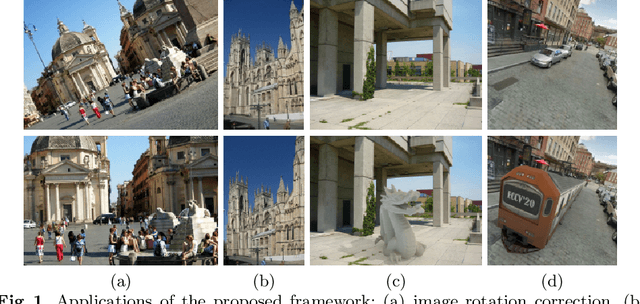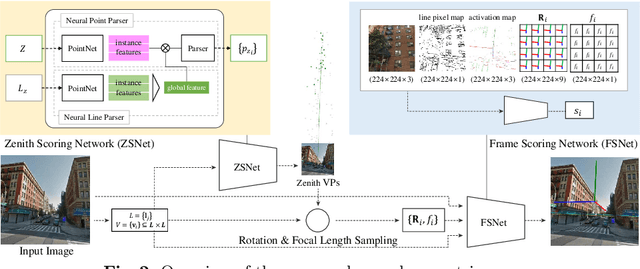Neural Geometric Parser for Single Image Camera Calibration
Paper and Code
Jul 24, 2020



We propose a neural geometric parser learning single image camera calibration for man-made scenes. Unlike previous neural approaches that rely only on semantic cues obtained from neural networks, our approach considers both semantic and geometric cues, resulting in significant accuracy improvement. The proposed framework consists of two networks. Using line segments of an image as geometric cues, the first network estimates the zenith vanishing point and generates several candidates consisting of the camera rotation and focal length. The second network evaluates each candidate based on the given image and the geometric cues, where prior knowledge of man-made scenes is used for the evaluation. With the supervision of datasets consisting of the horizontal line and focal length of the images, our networks can be trained to estimate the same camera parameters. Based on the Manhattan world assumption, we can further estimate the camera rotation and focal length in a weakly supervised manner. The experimental results reveal that the performance of our neural approach is significantly higher than that of existing state-of-the-art camera calibration techniques for single images of indoor and outdoor scenes.
 Add to Chrome
Add to Chrome Add to Firefox
Add to Firefox Add to Edge
Add to Edge